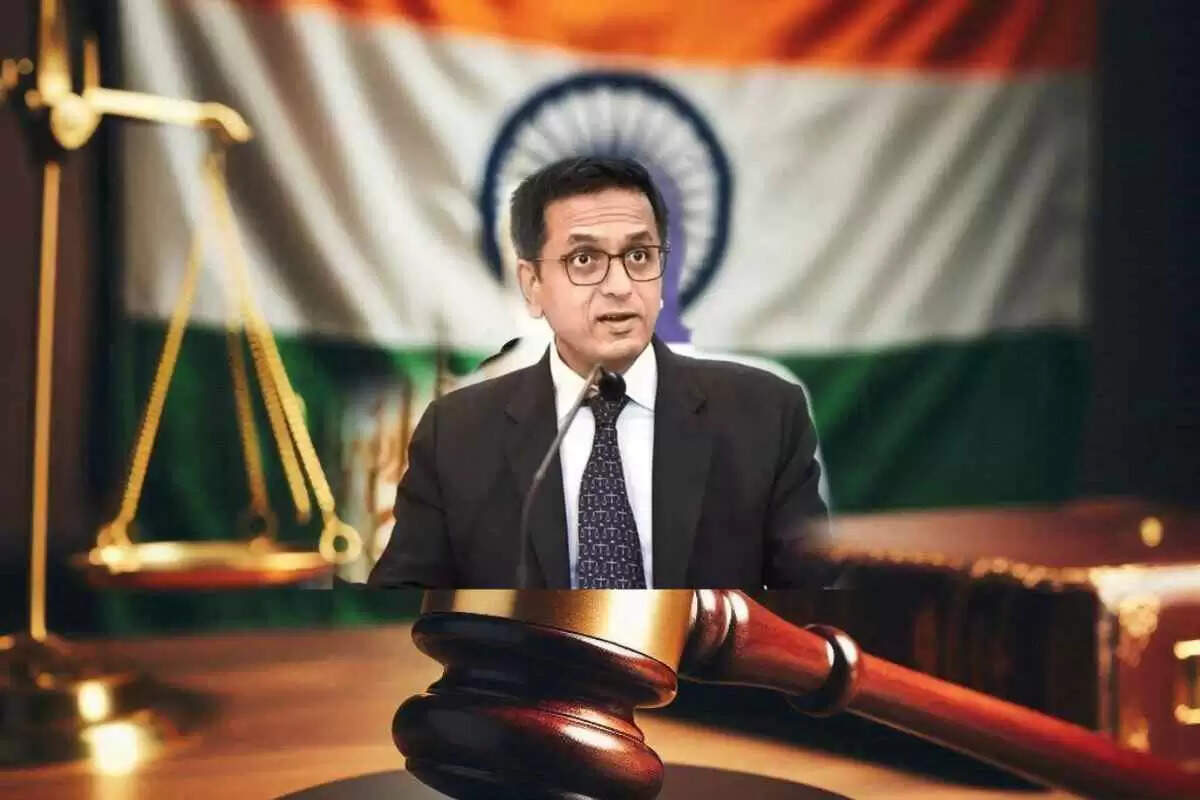Chief Justice DY Chandrachud Admonishes Lawyer for Informal Language in Court

A lawyer using colloquial language during a Supreme Court hearing today was reprimanded by Chief Justice of India (CJI) DY Chandrachud in a notable event that highlights the decorum expected in India's highest court. The exchange emphasises the significance of upholding professionalism in the courtroom and serves as a reminder of the gravity of judicial proceedings.
The incident happened while the attorney was arguing his case in court. He addressed the court while making a casual allusion to former Chief Justice Ranjan Gogoi with the word "yeah." Chief Justice Chandrachud responded sharply and promptly to this casual remark, stressing the need of using proper language in such a serious setting.
Say "yes," rather than "yeah." CJI Chandrachud declared, "This is a court, not a coffee shop," establishing an authoritative and resolute tone that demonstrated her dedication to maintaining the integrity of the legal system. He went on to explain, "I am a little allergic to people saying 'yeah,'" demonstrating his adamant commitment to upholding the civility that is required in court.
This interaction serves as a reminder to legal professionals of their obligation to conduct oneself with the highest respect for the court and its procedures, in addition to reflecting the Chief Justice's standards for professional communication. In a time when casualness has crept into all spheres of life, including the workplace, the Chief Justice's comments seem like a plea for a return to customary judicial behaviour.
The lawyer, who was probably surprised by the rebuke, began speaking in Marathi, his mother tongue, as the hearing went on. Surprisingly, CJI Chandrachud also replied in Marathi, demonstrating his respect and ability to communicate with the lawyer in a language that suited him. The Chief Justice's approachability was demonstrated in this bilingual exchange, which also emphasised the significance of unambiguous communication in the courtroom regardless of the language spoken.
Both litigants and solicitors can learn a lot from this episode. Courtrooms are sacred places where justice is sought and carried out, not just places for legal disputes. The language used within these walls ought to be commensurate with the gravity of the situation and the institution's honour. The warning from Chief Justice Chandrachud serves as a pertinent reminder of the importance of professionalism and how even small indiscretions in manners can diminish the seriousness of legal discussions.

Legal scholars and commentators have pointed out that these kinds of reminders are crucial to upholding the judiciary's standards. In a time when distinctions between official and informal communication are becoming more hazy, the judiciary's emphasis on maintaining conventional decorum is essential to maintaining the deference and respect that courts are entitled to.
The dedication of CJI Chandrachud to maintaining courtroom etiquette is also consistent with larger initiatives to improve public access to and comprehension of the judicial system. Through promoting lucid and courteous communication, the Chief Justice cultivates a setting in which all stakeholders can participate actively in the quest for justice.
The legal community needs this occurrence as a critical reminder of the significance of language and behaviour in court. CJI Chandrachud's firm but fair approach reflects the norms that should guide the relationships between the judiciary and legal profession as the legal landscape continues to change.
In summary, today's hearings demonstrated the Chief Justice's capacity to strike a balance between authority and approachability, as well as the importance of professionalism in the legal system. Sustaining the decorum of the courtroom is an essential part of the judiciary's role as it navigates contemporary issues and makes sure that justice is administered with due respect.
--
